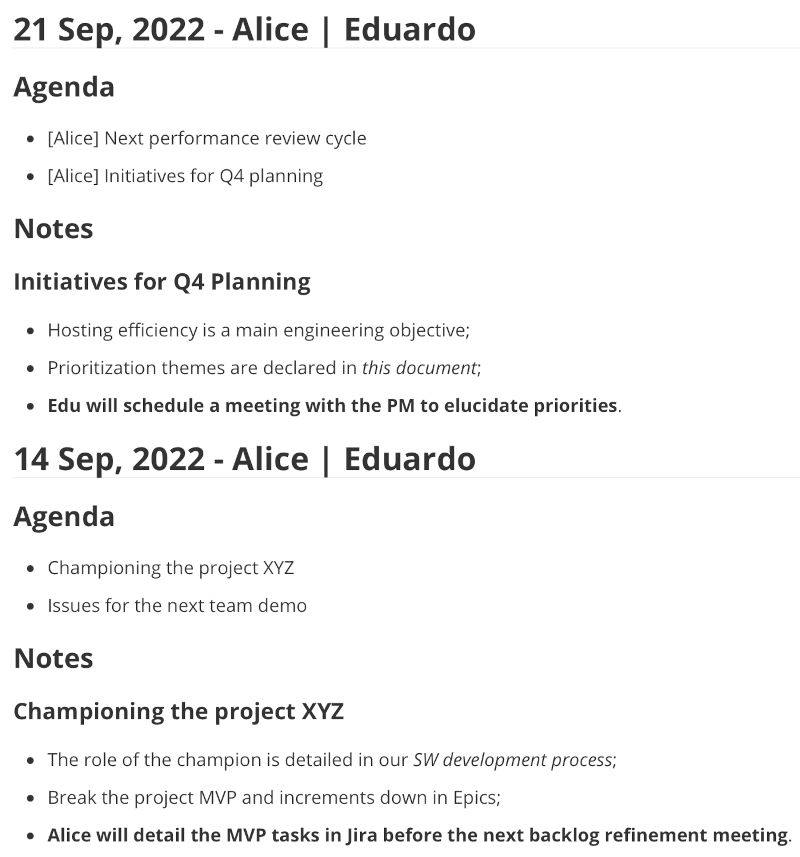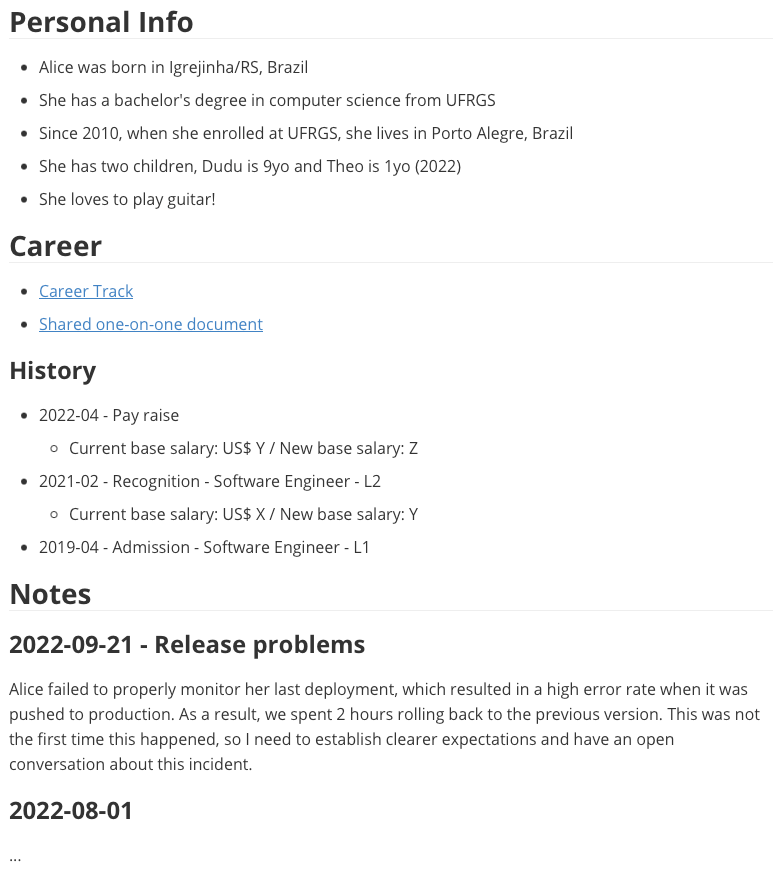Taking Notes of One-on-ones
Taking notes of one-on-one meetings is an important step to support the growth of your direct reports and help you keep track of it.
I’ve been in situations where I had more than ten direct reports, and without writing things down, I would certainly fail miserably; disorganization and mismanagement would follow.
Some benefits include:
- To prepare the agenda for your next one-on-ones. Both parties should have a document to write down something they don’t want to miss the next time they meet;
- Keep track of decisions you made and assigned actions;
- Keep a record of deliveries and achievements;
- Provide your direct reports with a source of information that will help them write their self-review during performance review cycles;
Another important aspect of this practice is having a lightweight process. No one wants to waste time on management stuff, no matter how important it is. If it is not simple and easy, it will likely fall into disuse.
To keep track of one-on-ones, I use two simple documents: a shared online document to collaborate with each direct report and a private document for my personal notes.
A shared online document to keep track of one-on-ones
First, I create a shared online document (platforms such as Google Docs or Microsoft Word work well) with each direct report, where we can prepare our agenda and collaboratively register our meetings. It is important that you use an online solution so you can both collaborate on the document at the same time.
This document is a timeline where the most recent entry is on the top, and it consists of:
- A new entry in the timeline for each one-on-one;
- Two sections for each entry, the agenda, and the meeting notes;
- For each topic discussed, a series of bullet points with notes and action items.
It is quite straightforward to fill it in. It looks like this:

You can get this template here.
A private document to keep personal notes
Second, I keep a private document for each direct report, where I save my personal notes about our relationship. In this document, I register thoughts that I do not want to share with them.
I use Obsidian as my note-taking app, so I keep an entry for each direct report in it. But if you want to keep it simple, just open another document in the same platform you chose before. Just make sure you keep it private.
This document consists of:
- A section to save personal information about your direct report. This is important to build an understanding of them and their life that will help us connect with them more easily;
- Another section to save information about their jobs; That’s where I save unstructured information about work, links to documents, etc.;
- The last section is a timeline of events, where I take personal notes.
This is an example of what it looks like.

You can get this template here.
And that’s it! I use these two documents to keep track of one-on-ones with my teams.
